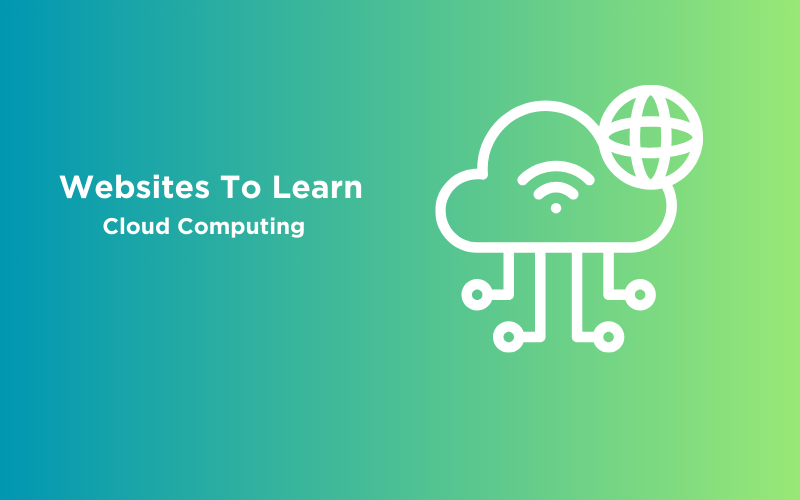
9 Astounding Websites To Learn Cloud Computing in 2025
Mar 13, 2025 9 Min Read 16965 Views
(Last Updated)
If you are one who’s more into Technology and keeps updating yourself with the trends, then you must have surely heard about cloud computing. Over the past few years, the cloud has become one of the most important things in the tech world and are you confused about where to learn cloud computing?
With the abundance of resources available over the internet, it is hard for someone to find the best websites to learn cloud computing. But, to relieve you from that hassle, we compiled this list of websites that can help you learn cloud computing.
In this article, you will understand about websites that best explain the concept of cloud computing and this will help you on your journey of learning cloud computing. So, without further ado, let’s get started.
Table of contents
- What is the Need to Learn Cloud Computing?
- Best Websites to Learn Cloud Computing
- Amazon Web Services (AWS) Training and Certification:
- Microsoft Learn
- Google Cloud Training
- Coursera Cloud Computing Courses
- edX Cloud Computing Courses
- Pluralsight
- Cloud Academy
- Udemy Cloud Computing Courses
- Conclusion
- FAQs
- What are the best websites to learn cloud computing?
- Are there free resources for learning cloud computing?
- What skills are required to pursue a career in cloud computing?
- How long does it take to learn cloud computing and become certified?
- Do I need a technical background to learn cloud computing?
What is the Need to Learn Cloud Computing?
Learning cloud computing is crucial in today’s digital world because it offers incredible benefits for both individuals and businesses. First and foremost, it provides flexibility and convenience.
Just like having access to your files, applications, and data from any device with an internet connection. No more worrying about losing important documents or being tied to a single computer. This convenience makes our digital lives much simpler.
On a larger scale, businesses rely on cloud computing to cut costs and boost efficiency. Instead of investing in expensive physical servers and infrastructure, they can rent space and computing power from cloud providers like Amazon Web Services, Microsoft Azure, or Google Cloud.
This flexibility allows them to scale up or down as needed, reducing waste and saving money. Plus, the cloud offers powerful tools for data analysis, machine learning, and more, giving companies a competitive edge.
So, whether you’re an individual looking for convenience or a business aiming to stay competitive, learning cloud computing is a valuable skill in today’s tech-driven world.
Before we move to the next part, you should have a deeper knowledge of cloud computing concepts. You can consider enrolling yourself in GUVI’s Cloud Computing Course, which lets you gain practical experience by developing real-world projects and covers technologies including Azure Command-Line Interface (CLI), Azure Monitor, Azure Resource Manager (ARM) Templates, and tools like Visual Studio Code, among many others.
Additionally, if you want to explore Azure through a Self-paced course, try GUVI’s Azure certification course.
Best Websites to Learn Cloud Computing
By now, you must have a clear understanding of the importance of learning cloud computing. This is deemed to be an important topic in this current world. So, to help you learn it much better, we compiled a list of websites that can help you learn cloud computing.
1. Amazon Web Services (AWS) Training and Certification:

Amazon Web Services (AWS) Training and Certification is a comprehensive learning program offered by Amazon Web Services, which is one of the world’s leading cloud service providers.
AWS provides a wide range of cloud computing services that enable individuals and organizations to build and manage applications, store data, and run various workloads in the cloud.
Here’s a detailed explanation of AWS Training and Certification:
1. Learning Resources: AWS Training and Certification offers a wealth of resources to help individuals gain the knowledge and skills needed to work with AWS cloud services. These resources include:
- Online Courses: AWS offers a variety of free online courses on topics ranging from cloud fundamentals to advanced cloud architecture. These courses are designed to cater to both beginners and experienced professionals.
- Hands-On Labs: You can access hands-on labs and exercises that allow you to practice working with AWS services in a real-world environment. This practical experience is invaluable for building competence.
- Certification Exam Preparation: AWS provides study guides, practice exams, and other materials to help you prepare for AWS certification exams. AWS certifications are widely recognized in the industry and can validate your cloud expertise.
2. Certification Programs: AWS offers a range of certifications that are organized into different levels, including foundational, associate, professional, and specialty certifications. These certifications cover various AWS service domains, such as cloud architecture, development, operations, security, and more.
- Foundational: These certifications are suitable for beginners and provide a fundamental understanding of AWS cloud concepts.
- Associate: These certifications are for individuals with some experience in AWS and are looking to deepen their knowledge in specific areas.
- Professional: These certifications are for more experienced professionals and demonstrate expertise in designing, implementing, and managing AWS solutions at an advanced level.
- Specialty: Specialty certifications focus on specific AWS domains like security, machine learning, and database management.
3. Flexibility: AWS Training and Certification offers flexibility in terms of learning paths. You can choose the courses and certifications that align with your career goals and interests. Whether you’re interested in becoming a cloud architect, developer, sysadmin, or data scientist, AWS provides relevant training.
4. Industry Recognition: AWS certifications are highly regarded in the IT industry and can enhance your career prospects. Many employers value AWS-certified professionals because they demonstrate a strong understanding of cloud technologies.
AWS Training and Certification is a comprehensive program designed to help individuals acquire the skills and knowledge needed to excel in the world of cloud computing.
2. Microsoft Learn

Microsoft Learn is a user-friendly platform created by Microsoft to help individuals learn about various technologies and services offered by Microsoft, including their cloud computing platform called Azure. Here’s a detailed explanation of Microsoft Learn:
1. Learning Resources: Microsoft Learn provides a wealth of learning resources, including:
- Interactive Modules: You can access interactive, step-by-step modules that guide you through different topics and technologies. These modules often include hands-on exercises to reinforce your understanding.
- Learning Paths: Microsoft Learn offers learning paths that are curated collections of modules and tutorials focused on specific roles or technologies. Whether you’re interested in becoming a developer, an administrator, or a data scientist, there are learning paths to suit your goals.
- Sandboxes: Microsoft Learn offers free Azure sandboxes, allowing you to experiment with Azure services in a safe and controlled environment, without incurring any costs.
2. Azure Cloud Training: Microsoft Learn is especially valuable for those interested in Azure, Microsoft’s cloud computing platform. You can find a wide range of Azure-related content, from beginner to advanced levels, covering topics like virtual machines, databases, artificial intelligence, and more.
3. Certification Preparation: Microsoft Learn provides resources to help you prepare for Microsoft’s Azure certification exams. Azure certifications are recognized in the industry and can boost your career prospects. You’ll find study guides, practice exams, and hands-on labs to help you succeed.
4. Free Access: One of the great things about Microsoft Learn is that it’s mostly free. You can access a vast library of learning resources at no cost, making it accessible to learners of all backgrounds.
5. Interactive Learning: The platform is designed to keep you engaged through interactive elements like quizzes, challenges, and coding exercises. This hands-on approach helps reinforce your learning and practical skills.
Whether you’re looking to build your skills, prepare for certifications, or explore new technologies, Microsoft Learn is a valuable resource that can help you achieve your goals in the world of IT and cloud computing.
3. Google Cloud Training

Google Cloud Training is an educational platform provided by Google Cloud, a leading cloud computing service offered by Google. It offers a wide range of resources to help individuals and businesses learn, build, and deploy applications and services on the Google Cloud Platform (GCP). Here’s a detailed explanation of Google Cloud Training:
1. Learning Resources: Google Cloud Training provides a wealth of resources for learning about Google Cloud Platform, including:
- Interactive Labs: You can access hands-on labs that allow you to experiment with GCP services in a real-world environment. This practical experience is valuable for gaining confidence and proficiency with cloud technologies.
- Online Courses: Google offers a variety of free and paid online courses, catering to beginners and experienced professionals. These courses cover various GCP services, from computing and storage to data analytics and machine learning.
- Certification Preparation: Google Cloud Training offers resources to help you prepare for Google Cloud certification exams. Earning GCP certifications can validate your expertise and enhance your career opportunities.
2. Google Cloud Platform (GCP) Content: The platform focuses on GCP, which includes services for computing, storage, databases, machine learning, data analytics, and more. Whether you’re interested in infrastructure, data analysis, or AI/ML, you can find relevant training materials.
3. Certification Programs: Google Cloud offers a range of certifications that demonstrate your proficiency in specific GCP domains. These certifications are well-respected in the industry and can open doors to exciting job opportunities.
- Associate Certifications: Suitable for beginners and individuals with limited cloud experience.
- Professional Certifications: Designed for more experienced professionals and demonstrated expertise in designing, implementing, and managing GCP solutions.
- Specialization Certifications: These certifications focus on specific areas such as data engineering, machine learning, and cloud security.
4. Active Community: Google Cloud Training includes a community aspect where you can connect with other learners, share knowledge, and seek assistance when you encounter challenges. Engaging with the community can enhance your learning experience.
5. Industry Recognition: GCP certifications are highly regarded in the IT industry. Achieving GCP certifications can boost your professional credibility and help you stand out in the competitive job market.
6. Free and Paid Content: While many resources are available for free, Google Cloud Training also offers paid content for more in-depth and specialized training. This allows you to choose the level of investment that suits your learning needs.
Google Cloud Training is a perfect platform designed to help individuals and organizations build their skills and expertise in cloud computing with Google Cloud Platform. Whether you’re new to cloud technology or looking to advance your career in the field, Google Cloud Training provides the resources and certifications necessary to succeed in the world of cloud computing.
If you want to know the differences between AWS or Azure or Google Cloud, refer to this blog – AWS vs Azure vs Google Cloud: Comparing the Top Cloud Service Providers
4. Coursera Cloud Computing Courses

Coursera is a popular online learning platform that offers a wide range of courses and specializations, including cloud computing courses.
These courses are designed to help individuals learn about cloud computing, its principles, and how to leverage cloud technologies for various applications.
1. Learning Platform: Coursera is an online platform that partners with top universities, colleges, and organizations to provide high-quality educational content. It offers a user-friendly interface that allows learners to access courses, lectures, and assignments from anywhere with an internet connection.
2. Cloud Computing Courses: Coursera provides a diverse selection of cloud computing courses, created by reputable institutions and instructors. These courses cover a wide range of topics within the cloud computing domain, including:
- Cloud Fundamentals: Beginners can start with introductory courses that explain the basics of cloud computing, such as cloud service models (IaaS, PaaS, SaaS) and deployment models (public, private, hybrid).
- Cloud Providers: Coursera offers courses specific to major cloud service providers like Amazon Web Services (AWS), Microsoft Azure, and Google Cloud Platform (GCP). These courses teach you how to use the services offered by these providers.
- Cloud Architecture: Advanced courses delve into cloud architecture and design principles, enabling you to create scalable and efficient cloud solutions.
- Cloud Security: Given the importance of security in cloud computing, there are courses that focus on cloud security best practices and strategies.
- Big Data and Analytics in the Cloud: Some courses explore how cloud computing can be used for big data processing and analytics, using services like AWS EMR or GCP BigQuery.
3. Specializations: Coursera offers cloud computing specializations, which are a series of related courses that provide in-depth knowledge and skills in a particular area. For example, you can find specializations in AWS, Azure, or GCP, allowing you to become proficient in a specific cloud platform.
4. Hands-On Learning: Many Coursera cloud computing courses include practical exercises and hands-on labs. These hands-on experiences are crucial for applying what you’ve learned and gaining real-world skills.
5. Certification: Some courses on Coursera offer certificates upon completion, which can be a valuable credential to showcase your expertise to potential employers.
6. Flexible Learning: Coursera’s cloud computing courses are typically self-paced, allowing you to learn at your own speed. However, there are also deadlines and schedules for those who prefer structured learning.
7. Accessible Worldwide: Coursera’s cloud computing courses are accessible to learners from around the world, making it a globally inclusive platform for cloud education.
Coursera offers a vast amount of cloud computing courses that cater to learners at various skill levels and preferences. Whether you’re looking to start your cloud computing journey, enhance your existing skills, or specialize in a particular cloud platform, Coursera provides a flexible and comprehensive learning platform to help you achieve your cloud computing goals.
5. edX Cloud Computing Courses

edX is a well-known online learning platform that offers a variety of courses, including a range of cloud computing courses. These courses are designed to help individuals gain knowledge and skills in cloud computing, a technology that’s become essential for businesses and IT professionals.
1. Online Learning Platform: edX is a user-friendly online platform that collaborates with top universities and institutions to provide high-quality educational content to learners worldwide. It offers a convenient and accessible way to access educational resources.
2. Cloud Computing Courses: edX has a diverse selection of cloud computing courses, created by prestigious institutions and experienced instructors. These courses cover a wide spectrum of topics within the field of cloud computing, including:
- Introduction to Cloud Computing: Beginners can start with introductory courses that explain the fundamental concepts of cloud computing, such as cloud service models (Infrastructure as a Service – IaaS, Platform as a Service – PaaS, Software as a Service – SaaS) and deployment models (public, private, hybrid).
- Cloud Service Providers: edX offers courses specific to major cloud service providers such as Amazon Web Services (AWS), Microsoft Azure, and Google Cloud Platform (GCP). These courses teach you how to utilize the services and tools offered by these providers.
- Cloud Architecture and Design: More advanced courses delve into cloud architecture and design principles, enabling you to create scalable, secure, and efficient cloud solutions.
- Cloud Security: Given the critical importance of security in cloud computing, edX also provides courses focused on cloud security best practices and strategies.
- Big Data and Analytics in the Cloud: Some courses explore how cloud computing can be harnessed for big data processing and analytics, using services like AWS EMR or GCP BigQuery.
3. MicroMasters Programs: edX offers MicroMasters programs, which are a series of related courses that provide in-depth knowledge and skills in a specific domain, including cloud computing. Completing a MicroMasters program can demonstrate your expertise in the field.
4. Hands-On Learning: Many edX cloud computing courses include practical exercises and hands-on labs. These hands-on experiences are crucial for applying what you’ve learned and gaining real-world skills.
5. Certification: Some courses on edX offer certificates upon successful completion. These certificates can serve as evidence of your proficiency in cloud computing and may be valuable for career advancement.
6. Pluralsight
Pluralsight is an online learning platform that specializes in providing technology-focused courses and resources to help individuals and organizations stay up-to-date with the latest trends in IT, software development, and other tech-related fields. Here’s a detailed explanation of Pluralsight:
1. Learning Platform: Pluralsight is a user-friendly online learning platform that offers a vast library of video-based courses, tutorials, and resources. It’s designed to cater to the needs of both individual learners and businesses looking to upskill their employees.
2. Technology-Centric Content: Pluralsight focuses on technology-related subjects, making it an excellent choice for IT professionals, software developers, data scientists, and anyone interested in tech-oriented learning. The platform covers a wide range of topics, including programming, cloud computing, cybersecurity, data analysis, and more.
3. Expert Instructors: Pluralsight collaborates with industry experts and professionals who are well-versed in their respective fields. These instructors create and deliver the course content, ensuring that it’s current, practical, and highly relevant.
4. Skill Paths and Learning Paths: Pluralsight offers guided learning paths known as “Skill Paths” and “Learning Paths.” Skill Paths are designed for individuals looking to acquire specific skills quickly, while Learning Paths are more comprehensive and cover broader areas of expertise.
5. Skill Assessment: Pluralsight provides skill assessment tests that help learners identify their current skill levels. These assessments can be valuable for tailoring your learning journey to your current proficiency.
6. Certifications: While Pluralsight doesn’t issue certifications itself, it offers courses and resources that can help individuals prepare for various industry-standard certifications. This is particularly useful for those seeking recognized credentials in their field.
7. Cloud Academy
Cloud Academy is an online learning platform that specializes in cloud computing and related technologies. It offers a comprehensive set of resources to help individuals and organizations gain expertise in cloud technologies and prepare for certifications. Here’s a detailed explanation of Cloud Academy:
1. Cloud-Focused Learning: Cloud Academy is designed for individuals and businesses looking to understand and leverage cloud computing technologies. It offers a wide range of content related to various cloud service providers, including Amazon Web Services (AWS), Microsoft Azure, Google Cloud Platform (GCP), and more.
2. In-Depth Courses: Cloud Academy provides in-depth, hands-on courses that cover a wide range of cloud-related topics. These courses are structured to help learners acquire practical skills and knowledge that can be immediately applied in real-world scenarios.
3. Learning Paths: Cloud Academy offers learning paths, which are curated collections of courses and assessments designed to help learners achieve specific goals, such as mastering a particular cloud platform or preparing for certification exams.
4. Certification Preparation: Cloud Academy provides resources and learning paths specifically tailored to preparing for cloud certification exams. These certifications are highly regarded in the IT industry and can enhance career prospects.
5. Skill Assessments: To help learners understand their current proficiency levels, Cloud Academy offers skill assessments. These assessments can identify areas for improvement and guide learners toward relevant content.
6. Real-Time Cloud Playground: Cloud Academy offers a real-time cloud playground that allows learners to experiment with cloud services in a safe and sandboxed environment. This hands-on experience is invaluable for gaining confidence in cloud technologies.
7. Interactive Content: The platform includes interactive content such as quizzes, exams, and gamified challenges to reinforce learning and provide a dynamic learning experience.
In summary, Cloud Academy is a dedicated online learning platform that specializes in cloud computing education. It offers a comprehensive suite of resources, including courses, labs, assessments, and certification preparation, to help individuals and organizations build their cloud computing expertise.
8. Udemy Cloud Computing Courses
Udemy is an online learning platform that offers a wide range of courses on various topics, including cloud computing. Here’s a detailed explanation of Udemy’s cloud computing courses:
1. Diverse Course Selection: Udemy features a vast and diverse collection of cloud computing courses. These courses are created by individual instructors, which means you can find a wide variety of perspectives and teaching styles.
2. Comprehensive Coverage: Udemy’s cloud computing courses cover a broad spectrum of topics within the field. You can find courses on cloud fundamentals, and specific cloud service providers like Amazon Web Services (AWS), Microsoft Azure, Google Cloud Platform (GCP), and more.
3. Different Levels of Expertise: Whether you’re a beginner or an experienced professional, Udemy offers courses suitable for various skill levels. You can start with introductory courses to build a strong foundation or delve into advanced topics to deepen your knowledge.
4. Practical Skills: Many Udemy courses focus on practical skills and real-world applications. Instructors often provide hands-on exercises and projects, allowing you to apply what you’ve learned.
5. Certification Preparation: Udemy offers courses specifically designed to help you prepare for cloud certification exams. These courses cover the exam objectives and often include practice exams to assess your readiness.
6. Lifetime Access: When you purchase a course on Udemy, you typically have lifetime access to the course materials. This means you can revisit the content and continue learning at your own pace.
7. User Reviews and Ratings: Udemy courses come with user reviews and ratings, which can help you choose courses that are highly regarded by other learners. Reading reviews can provide insights into the course quality and the instructor’s teaching style.
8. Cost-Effective: Udemy courses are often priced affordably, and the platform frequently runs promotions and discounts, allowing you to access quality cloud computing education without breaking the bank.
9. Variety of Instructors: Since Udemy courses are created by individual instructors, you can choose courses taught by instructors whose teaching style and expertise align with your preferences and needs.
Conclusion
In conclusion, the world of cloud computing is constantly evolving, and acquiring the right skills and knowledge is essential for anyone looking to thrive in this technology-driven world. Fortunately, there is no shortage of excellent online resources to help you on your journey.
These websites offer a wealth of courses, hands-on labs, certifications, and vibrant communities to support your cloud computing education. Your choice ultimately depends on your specific goals, preferred learning style, and budget, but with these top websites at your disposal, you’re well-equipped to embark on your cloud-computing learning adventure.
Kickstart your career by enrolling in GUVI’s Cloud Computing Course where you will master technologies like matplotlib, pandas, SQL, NLP, and deep learning, and build interesting real-life cloud computing projects.
Alternatively, if you would like to explore Python through a Self-Paced course, try GUVI’s Azure certification course.
FAQs
Some of the best websites to learn cloud computing include AWS Training and Certification, Microsoft Learn, Google Cloud Training, Coursera, edX, Pluralsight, A Cloud Guru, LinkedIn Learning, and Udemy.
Yes, many websites offer free resources, including AWS, Microsoft Learn, and Google Cloud. You can access introductory courses and documentation at no cost.
Key skills include understanding cloud concepts, proficiency in a cloud provider’s services, networking knowledge, security expertise, scripting/programming skills, and problem-solving abilities.
The time required depends on your prior knowledge and dedication. It can take several months to a year to become proficient and earn certifications, depending on your study pace.
While a technical background can be helpful, many cloud computing courses cater to beginners with no prior technical experience. A willingness to learn is the most important factor.

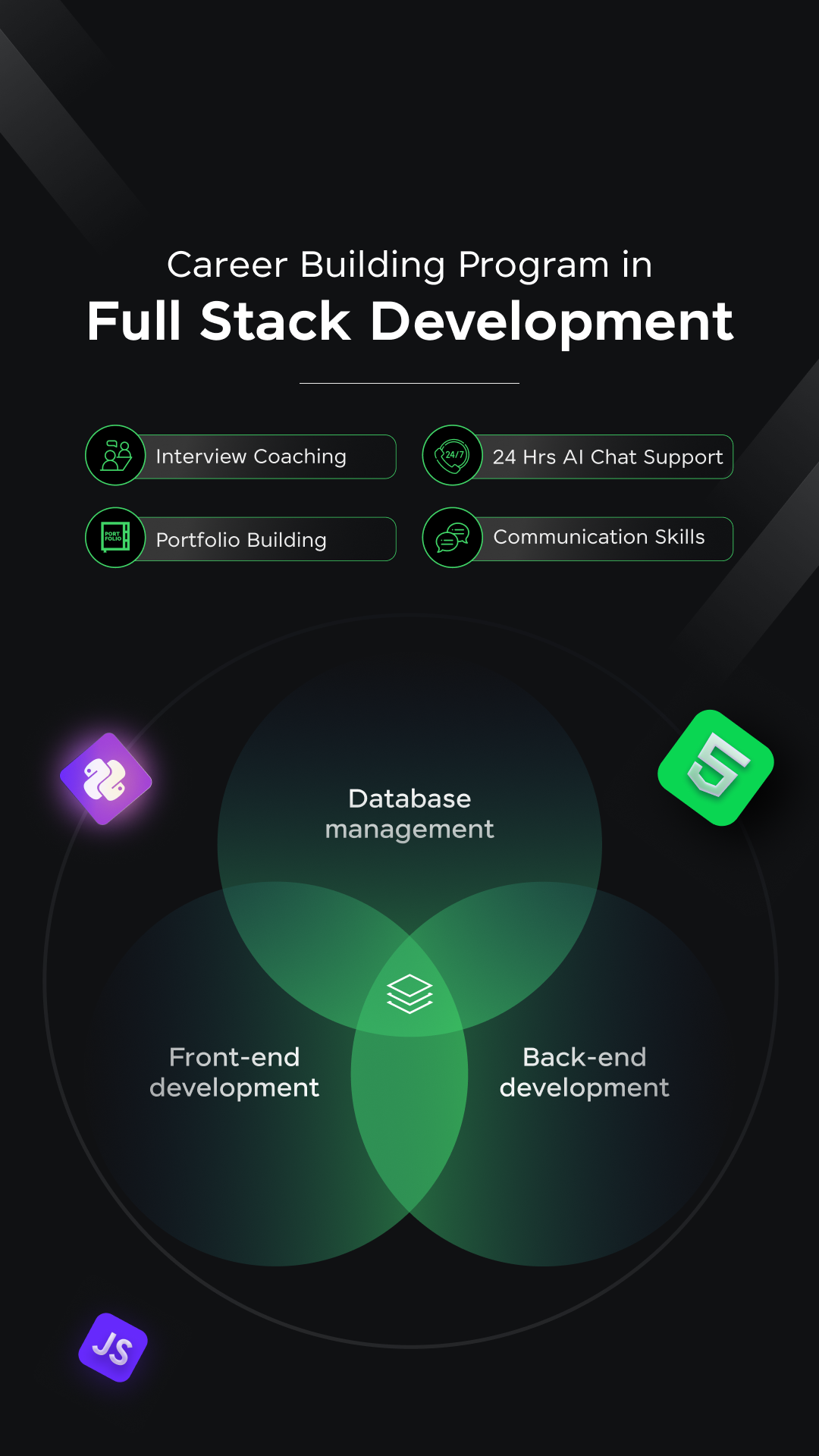
















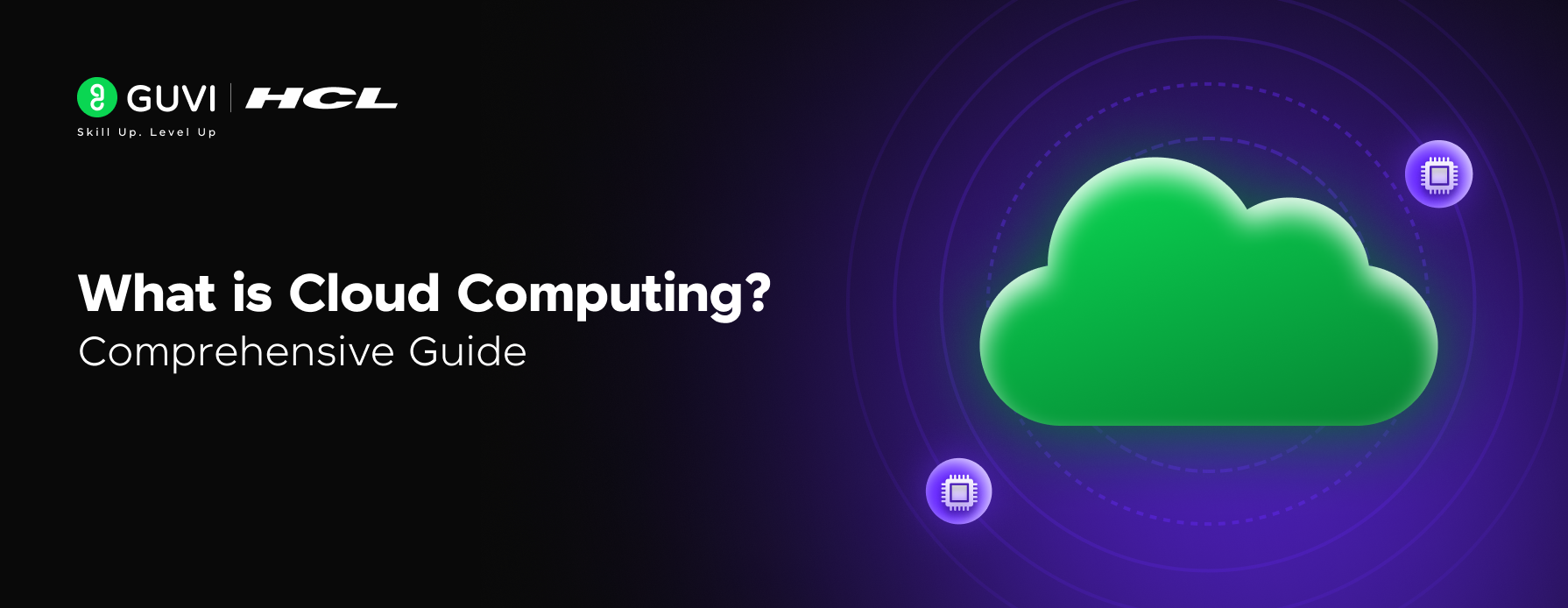
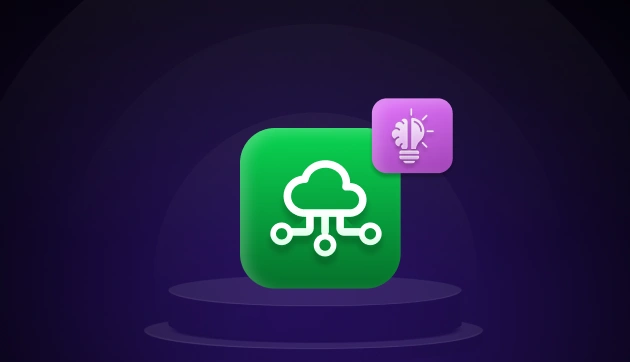

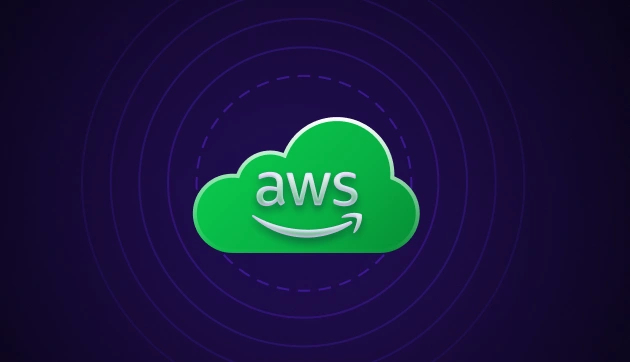

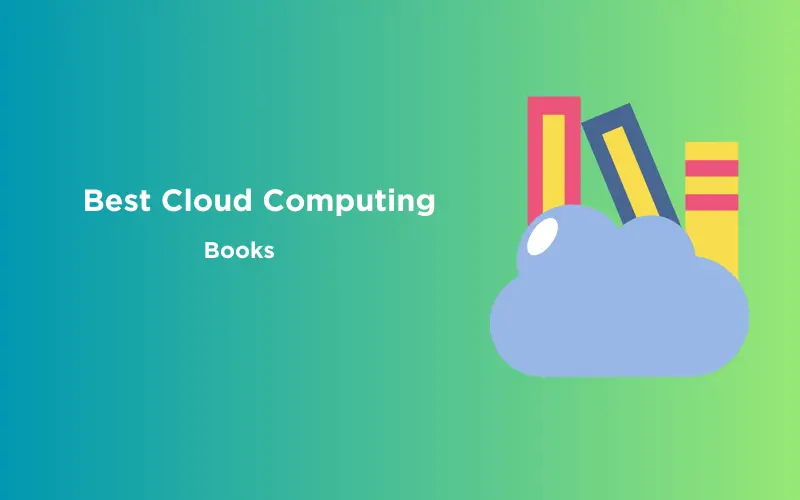

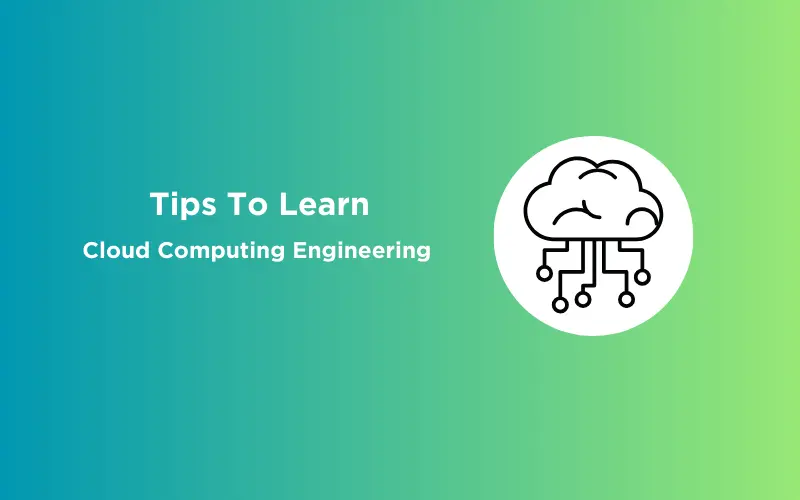


Did you enjoy this article?